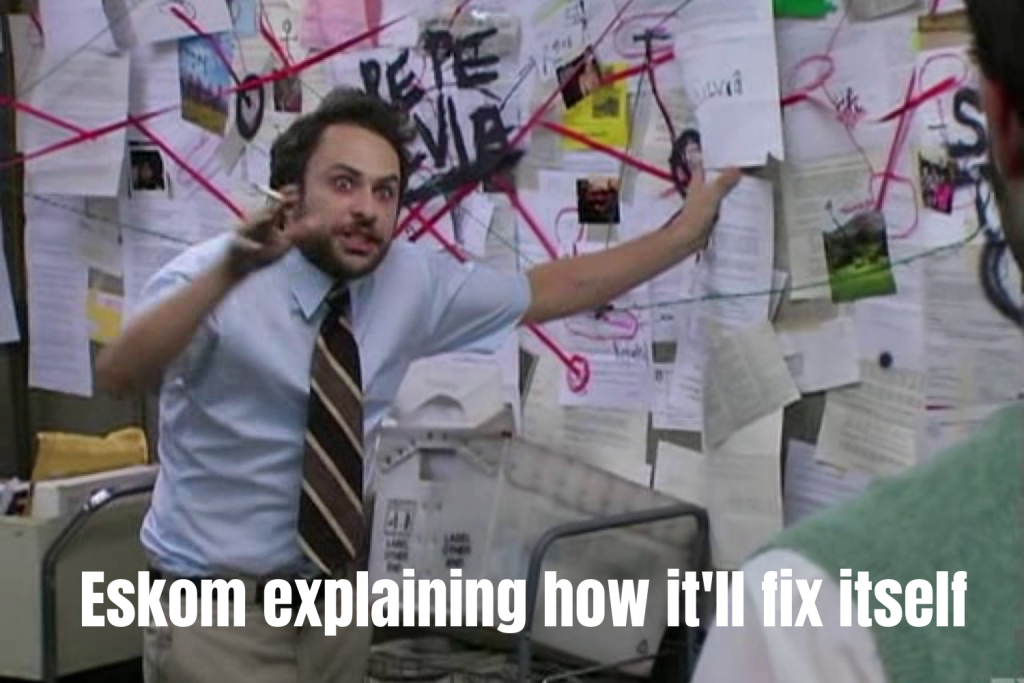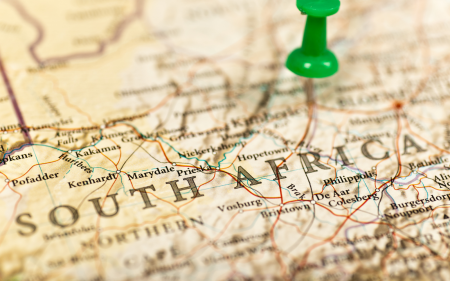South Africans have an innate ability to overcome adverse circumstances. No water? We cut consumption and flush with the bathwater. No electricity? We fire up the braai and cook a three-course meal on an open fire. Any first-worlder would look upon this adaptable creature in awe, but for us, it’s just another day.
The above scenario is the norm for the privileged among us — there are large segments of the South African population that face far worse. We’re here to talk about South Africa’s most painful topic, however.
Eskom, did you check under the couch?
Eskom, the national electricity provider (that last bit is debatable), has been every new journo’s favourite keyword this week. After the country was plunged into the fourth level of rolling blackouts, the utility (also debatable) was found to have ‘mismanaged’ R11.7 billion during the past year.
The official term is “irregular expenditure”, which is a nice way of saying ‘fraud’ Also, according to the Mail and Guardian, “record-keeping at the parastatal was so weak that auditors could not reliably test compliance with tender rules or certify the internal finding that irregular expenditure had dropped to R11.7-billion in the past financial year as correct.”
That’s reportedly down from R14.3 billion it managed to misspend in the previous year. So now we’re celebrating that it managed to lose slightly less of the public’s money this year? While those same citizens continue to raise families, run businesses, and stay alive without electricity? Sure.
Let’s sprinkle in some good news to lighten the mood, shall we?
“Eskom managed to make great strides in how much irregular expenditure it recovered: R1.1 billion in the past year, from R150 million in 2020,” News24 reports.
That’s enough of that.
Shortly thereafter, senior economist at the Efficient Group, Dr. Francois Stofberg, managed to publish his findings (Business Insider) on how much money load shedding is costing South Africa. Spoiler: It’s a lot.
He explains that the research only includes economic factors, and not social ones, detailing that: “…our conservative back-of-the-envelope estimates showed that South Africa’s economy was between 8% and 10% smaller than it could have been if we were not plagued by Eskom’s inefficiencies and inadequacies.”
South Africa’s gross domestic product (GDP) could reportedly have been between R360 billion and R450 billion larger than it currently is, with up to 1 million job opportunities lost because of the shrunken economy.
Sprinkle some hope in there.
What’s Eskom’s answer? According to its Twitter profile, the utility ‘regrets’ implementing load shedding at every incidence. In addition, the utility is on track to be unbundled by the end of the year.
Announced earlier this year, this unbundling will see the utility split into three entities: generation, distribution, and transmission. According to Eskom CEO André De Ruyter, a fully functional transmission company has been established as a legal entity, complete with temporary directors and everything.
“We are on track to meet all of the Eskom targets for the legal separation of our transmission business by the end of the year (31 December) … We have also put in place measures to start trading electricity between generation and distribution using the facility of the transmission system and market operators,” says De Ruyter.
While it won’t be clear whether the unbundling strategy will have an adverse effect on the end-user for some time. It’s probably best not to have trust in the utility for the foreseeable future — load shedding’s here to stay. Better gear up for it if, you’re financially able to.




